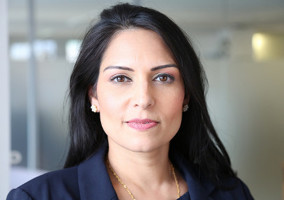Concerns over DfID’s use of a “service delivery model” when it comes to international aid were raised in a debate yesterday on the civil society space.
The Westminster Hall debate was raised by Jim Shannon from the Democratic Union Party, and looked at civil society around the world, and the increasing restrictions felt by civil society organisations.
He said: “DfID’s current civil society partnership review, which was announced by the Secretary of State for International Development, sets out a simplified new central funding system for civil society organisations that supposedly incentivises good performance and pushes for more efficiency, transparency and accountability.
He said that “while value for money and stemming profiteering is welcome”, he must ask the Secretary of State “what she is doing to ensure that the current stringent reassessment of DFID’s partnership with grassroots organisations will not, in practice, endanger UK support of vital civil society action”.
Patrick Grady, SNP MP for Glasgow North, also questioned DfID’s approach, and the “Civil Society Partnership Review”, which DfID published in November 2016. He said: “My concern about it was that the concept of partnership was being changed significantly.”
Adding: “Partnership was not about working together to achieve shared goals but about a service delivery model through which DfID was almost to commission its desired results from civil society stakeholders, rather than take the collaborative approach that may have been seen in the past.”
Khalid Mahmood, Labour MP for Birmingham, Perry Barr, added that DfID needs to “keep the use of external contractors to a minimum”.
He said: “We all cherish the fact that we have protected our fantastic aid budget in difficult circumstances here at home. We want to keep protecting that budget, but if we are to do that, it must be implemented properly in countries of operation, and DFID must understand that when it allocates money in those countries, it should keep the use of external contractors to a minimum.”
This is not the first time DfID has received criticism over these policies, ActionAid’s director of programmes last year described them as a “scary visions of aid”, and of aid which is “a self-interested agenda, rather than genuinely looking to address poverty and injustice around the world.”
Speaking of the concerns around civil society throughout the world more generally, Susan Elan Jones said that “the tradition of civil society and openness goes hand in hand with the development of charity in our country”.
Grady said he wanted to thank “the large number of non-governmental, civil society organisations that provided briefings for today’s debate, including Bond, CAFOD, Amnesty International, the Charities Aid Foundation, and ABColombia.”
He said that “the fact that so many briefings were submitted is a cause for both celebration and perhaps a little concern: celebration because this country has a vibrant NGO sector that feels empowered to speak out; but concern at the content of the briefings and the many instances of the closing of civil society space around the world.”
He added that a report from Amnesty said that the situation is unprecedented.
Related articles











